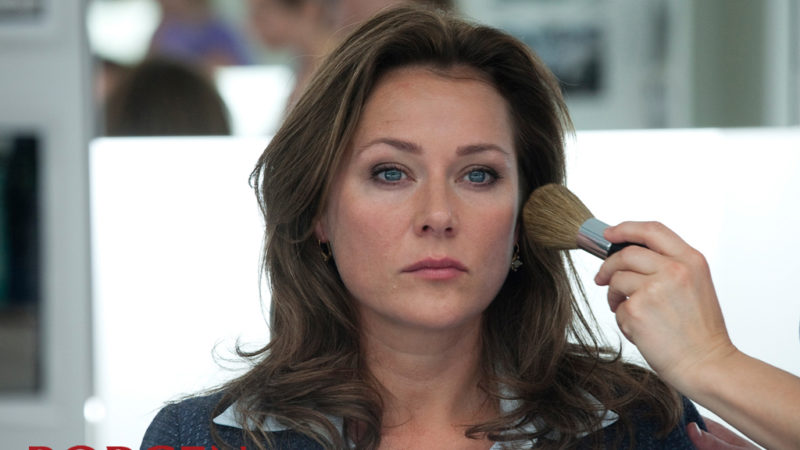
Birgitte Nyborg joins the pantheon of idealistic, smart, likeable politicians we all secretly wish we had instead of our real ones. She is the Danish Jefferson Smith, President Bartlett or Mrs Pritchard. She is intelligent, beautiful, vulnerable, and idealistic.
The leader of the Moderate Party, a magnificent swan navigating her way through piranha-infested waters, has just completed her first months as Danish prime minister in Borgen. BBC4 has broadcast the first series of the hit Danish political drama, and half a million of us have been hooked. A second series has already been shown in Denmark, and will be with us soon.
Borgen – Danish for castle or fortress – is comparable to the Americans’ use of ‘The Hill’. But in Denmark, it includes the parliament, prime ministers’ office, and the supreme court. I have learned more about Danish politics in the past few weeks than the previous 25 years. During the week I met with a Danish diplomat. She reliably informed me that most of Borgen is accurate. The prime minister can cycle around town, take unmolested walks in the park, and as Nyborg does in one episode, take the day to ‘work from home’. The episode where she forms her coalition government is a master class that Ed Miliband may have to emulate sometime soon. We’ve learned about the political system, the culture of multi-party government, and most importantly that Danish for ‘spin doctor’ is ‘spin doctor’.
The influence of American political culture is everywhere. Kasper Juul, the abused, tortured, amoral spin doctor listens to JFK’s inaugural address on his IPod whilst jogging. Katrine Fønsmark, the television political reporter has an All the President’s Men poster on her bedroom wall. Yet it is Birgitte Nyborg who stands up to the Americans over their use of Greenland airbases for extraordinary rendition, and loses her chance for a Presidential visit. That’s her Love Actually moment, when she gets to face down the bullies.
There’s a running narrative through Borgen, as through its bigger, smarter antecedent West Wing, or our own minor league contenders such as A British Coup (being remade I hear), or even Yes Minister. It is that politics corrupts, and the higher you get, the more corrupting it becomes. The idealism of Nyborg, a busy mum with a husband who looks like a model from the Boden catalogue, is contrasted with the breath-taking cynicism of her spin doctor Kaspar, or Bent Sejrø, her grizzled political retainer, or the utter slime ball Leader of the Labour Party Michael Laugesen. Laugesen, Nicolo Machiavelli’s morals with Alan Milburn’s good looks, manages to be a venal politician, author of a despicable, slanderous ‘kiss and tell’ book about other politicians, and a tabloid editor, all in the first series. I think he deserves a spin-off.
The message of Borgen is that politics is broken, but the decent citizens needed to fix it can’t breach the Fortress walls. As they try, they are thwarted by the vested power interests of big business, established political parties and the media, and in the end pay the price. At the end of A Very British Coup, some 25 years ago, the air is filled with the sound of helicopters. At the end of Borgen, there are only broken hearts.
The early episodes reminded me of the flush of excitement when New Labour was first elected. New Labour was about doing politics differently, sweeping away the old shibboleths and dusting away the cobwebs. Our first months in office were exhilarating, with endless big exciting initiatives and announcements. The first wave of New Labour reforms were more exciting than anything portrayed in the West Wing or Borgen. For once, real life trumped drama. But in the end, as we know, the excitement fades and harsh realpolitik kicks in.
Borgen doesn’t just tell us about the lives of the Danish political class, with their beautifully decorated homes and Le Corbusier loungers, their fierce egalitarianism and proud nationalism. It also tells us about ourselves. It tells us that we long for politicians who are human, decent, motivated by public service, and desirous to do the right thing for those who deserve it. It reminds us that politics should be about values, not ambition, and that the craft of politics, on rare occasions, need not become corrosive to those who practice it.
———————————————————————————————————————-
Paul Richards is currently seeking the nomination to be Labour’s candidate for police commissioner in Sussex.




More from LabourList
New Years Honours 2026: Full list of Labour figures being awarded
What are Labour figures proud of this year – and what are their hopes for 2026?
Lord Hayward: Disappointing May elections could decide Keir Starmer’s fate